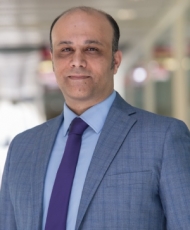
Mastering Terminology Management in Translation Practice
Mastering Terminology Management in Translation Practice
Introduction
Workshop Leader:
Nabeel Rashid
Workshop Schedule Date: 01 February 26 - 05 February 26
Workshop Schedule Time: 4:00 – 7:00 PM
Duration: 15 hours (3 hours per day)
Venue: Minaretein Building, Education City
About the Workshop
Unlock Precision in Translation with Nabeel Rashid
Overview: A dynamic workshop on Terminology Management in Translation Practice. Essential for translators and language professionals, effective terminology management enhances accuracy and coherence in translations. This workshop offers a deep dive into the crucial role of terminology in specialized texts and provides practical strategies for leveraging terminology tools and techniques.
Structure
- Day 1: Understanding Terminology
- Define what terminology is and how it functions.
- Explore different types of terminology and their impact on clarity and precision.
- Discuss the importance of terminology in translation and technical writing.
- Day 2: Methods & Tools for Terminology Management
- Introduction to terminology extraction and creation techniques.
- Utilize terminology databases and glossaries.
- Hands-on demonstration of terminology management software.
- Day 3: Terminology Standardization & Control
- Understand the importance of standardizing terminology within organizations.
- Learn best practices for maintaining terminology control.
- Review case studies of successful terminology standardization efforts.
- Day 4: Terminology in Practice
- Discuss real-life challenges and solutions in terminology management.
- Explore recommended resources for ongoing terminology management.
- Engage in a Q&A session for additional guidance.
What You Will Learn
- Master Terminology Basics: Understand the fundamentals of terminology, including its types and impact on clarity and precision.
- Explore Advanced Tools: Get hands-on experience to streamline your translation processes.
- Standardize and Control: Learn best practices for standardizing terminology within various fields to ensure consistency and quality.
- Apply Skills Practically: Engage in real-life exercises and case studies to identifying, documenting, and managing terminology.
Target Participants: This workshop is perfect for translation students, new professionals, and experienced practitioners. Bilingual editors, journalists, and copywriters are also encouraged to join. With a maximum capacity of 12 participants, you’ll benefit from a highly interactive and personalized learning experience.
About the Leader/Instructor
Nabeel Rashid
Expert in Translation and Mentorship
Nabeel Rashid is a leading translation reviser at Hamad Bin Khalifa University’s Translation and Training Center, where he plays a crucial role in mentoring MA interns in translation studies. His dedication to guiding the next generation of translators is matched by his extensive experience in the field.
A Rich Professional Background: Nabeel’s career spans diverse domains, including his role as an accredited court translator and registered health care interpreter in Vancouver, Canada. His impressive portfolio features work with the Ministry of Justice, the Provincial Health Authority, and human rights organizations like the UN’s Vancouver Association for Survivors of Torture.
Academic Excellence: Nabeel holds a postgraduate diploma in healthcare and community translation from Vancouver Community College, along with BA and MA degrees in English from the University of Baghdad. His academic journey also includes lecturing at his alma mater, showcasing his deep understanding of both language and education.
Specialization in Sports Translation: With a specialization in sports translation, Nabeel has contributed to high-profile projects for the Qatar Olympic Committee and the Doha Asian Games Organizing Committee. His work includes translating and revising major publications like “Vancouver Olympic Games: IOC Gathering and OG Events” (2010) and “The Moment of Lifetime: A Documentary on Sports History in Qatar” (2007).
Professional Affiliations Nabeel is member of several prominent translation and teaching societies, including the Society of Translators and Interpreters of British Columbia, the American Translators Association, and the Association of Canadian College and University Teachers of English. His affiliations underscore his commitment to the profession and ongoing contributions to the field.
Discover the opportunity to learn from an expert with a wealth of experience and a passion for mentoring the next generation of translation professionals.







